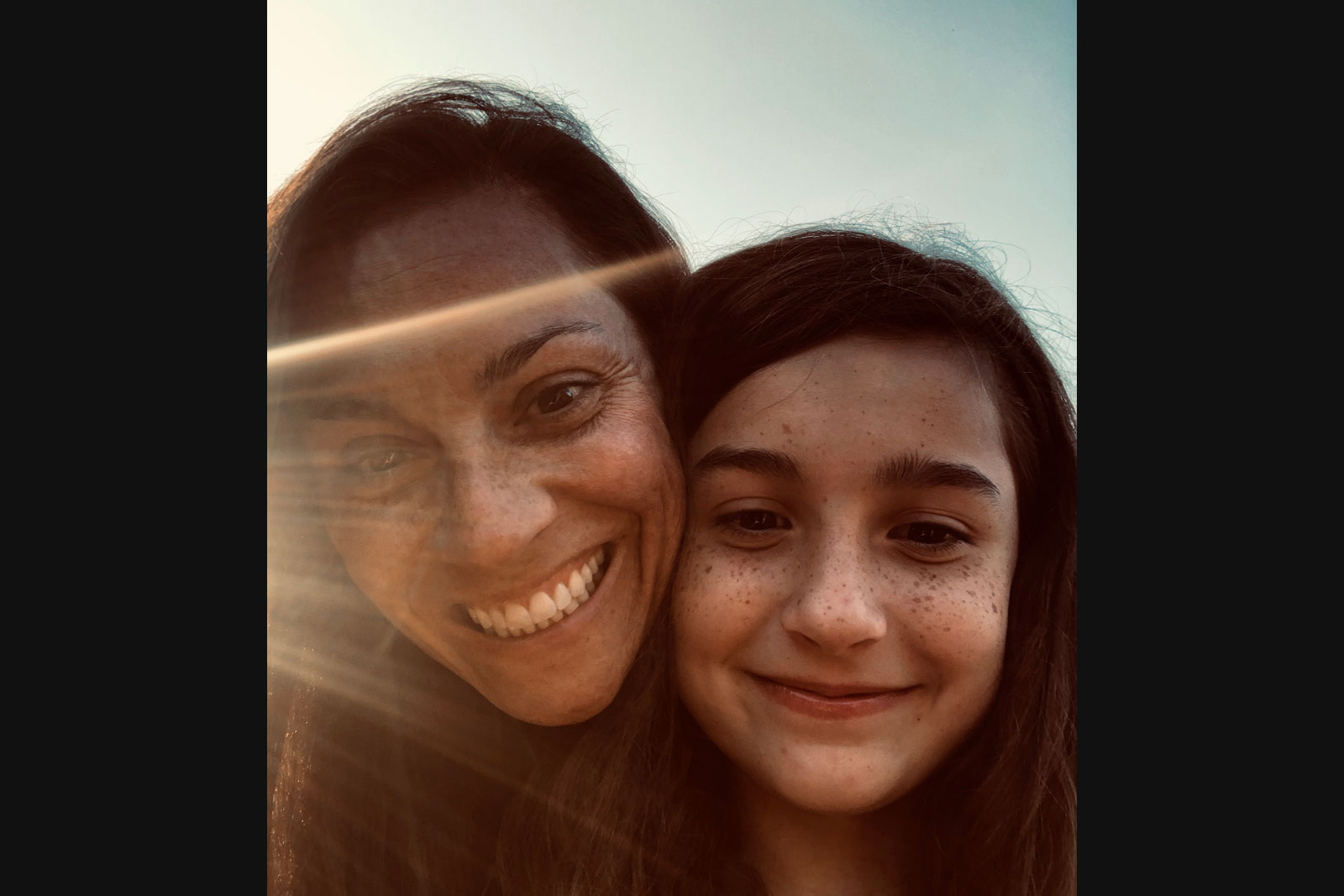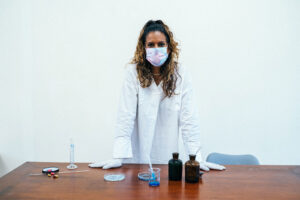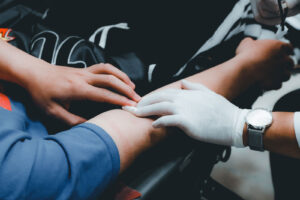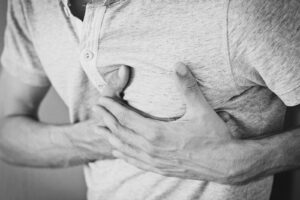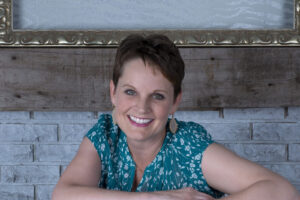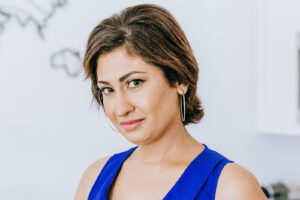I inherited my mother’s sense of humor. I inherited her love to care for others, as we are both nurses. I inherited her love for running. She is an impressive 20-time marathon runner. I have just five under my belt—so far.
I also inherited the BRCA1 gene mutation from her.
Although I didn’t learn I carried the mutation until I was 21, deep down, I always knew there was a cancer bullet careening towards me, gaining speed with each passing millisecond. Just looking at my family history alone tells a grave story. It’s riddled with countless young women who died from breast and ovarian cancers. But what my family tree doesn’t show is that these ancestors were strong and determined women who suffered great pain and loss, as fighters. It is because of those women that I am who I am today, that I am here today and that I live with reckless bravery.
As a child, my mother was keenly aware of cancer in her family. Women were dying, and they were dying young. Her own mother succumbed to ovarian cancer at the age of 44 when my mother was just 14 years old. My mother felt like there was a cancer bullet that was heading directly toward her, too. In her young adulthood, she pleaded with doctors to listen to her concerns about the history of breast and ovarian cancer that raged through her family, but they didn’t. One doctor even told her, “Just be thankful you don’t have a family history of diabetes.”
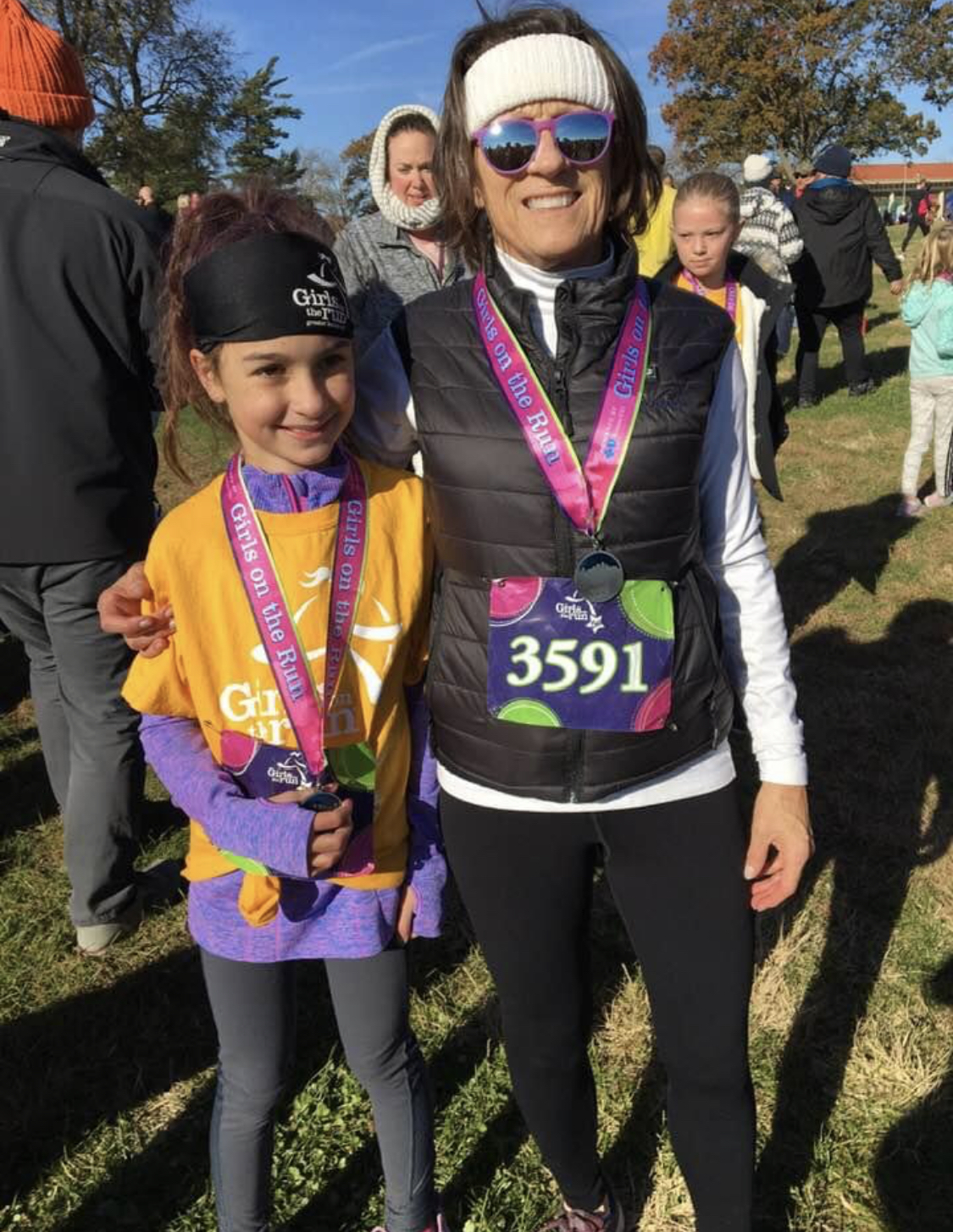
In 1988 at the age of 32, my mother was struck with the bullet. She was diagnosed with breast cancer that had already metastasized to her lymph nodes. She had four young children at home between the ages of two to eight. Not only was she devastated, she was angry. No one had listened to her and, therefore, what she had always feared came true. But she wasn’t going down without a fight. After a bilateral mastectomy, removal of both of her ovaries and uterus, and eight months of chemotherapy, she survived metastatic breast cancer. In the wake of her triumph, she had an even bigger mountain to climb. She had three daughters at home with targets on their backs, me being one of them.
During my mother’s cancer treatment, she was connected with a researcher, Dr. Henry Lynch, at Creighton University. He was studying the potential existence of hereditary cancers. My mother presented him with a thorough family history that she and her relatives put together. They were able to trace their family history of cancer back to 1863 when their great-great-great grandparents immigrated to the United States from Poland. In a time when many experts believed all cancer was caused randomly or by viruses, Lynch hypothesized that some cancers were hereditary. His colleagues quite literally laughed at him, but he was determined to prove this theory. Lynch conducted a research study and our family was a part of it.
In 1988, I was tested for the BRCA gene mutation at the age of five. There wasn’t even a mutation isolated yet, but our DNA helped in identifying it. Lynch, along with twelve competing teams of gene hunters, worked to isolate a breast cancer gene. Mary-Claire King, Ph.D., a professor of genome sciences and medicine at the University of Washington, was one of those gene hunters working to prove a genetic predisposition to breast cancer and is credited for being the first person to isolate the BRCA1 mutation. All that matters though is that there was an answer. My mother was right all along. The cancers that all the women in her family were dying from were hereditary.
The options for females who carry the BRCA mutation are pretty sparse. There are just two, in fact—or three if you include denial, I guess. The primary options are surveillance or surgery. My choice was easy. I knew that every woman, except for one, in my family history that carried the BRCA mutation had developed either breast or ovarian cancer. The scariest thing was that the onset of cancers was getting younger with each generation. My great-grandmother was 65 when she died of ovarian cancer. My grandmother was 44 when she died of ovarian cancer. My mother was then just 32 years old when she was diagnosed with breast cancer. This staggering information was enough to scare the boobs right off of me.
My great-grandmother was 65 when she died of ovarian cancer. My grandmother was 44 when she died of ovarian cancer. My mother was then just 32 years old when she was diagnosed with breast cancer. This staggering information was enough to scare the boobs right off of me.
I chose to have a prophylactic mastectomy at the age of 22. I was mentally and emotionally prepared for the surgery because cancer and BRCA were already a huge part of my life. I always knew it was likely something I was going to have to do, and I spent most of my life preparing for it. I also had a recklessly brave mother who wouldn’t give up until she had the answers she desperately searched for.
Now, at the age of 38, I have had my breasts and ovaries removed to avoid a cancer diagnosis. Was it reckless? Maybe. Was it brave? Hell yes. Did it save my life? Undoubtedly. Where did I get the courage to do it? From my mom. I am so thankful for her staunch perseverance. It saved her life and now it has saved mine.
I, too, have a daughter, Penelope Kathryn. She is 10 and her physical and emotional genes scream 1860s Poland. Does this mean she inherited the BRCA mutation from me? Not necessarily. Do we know yet? No. We do not know if she is a BRCA mutation carrier but we will find out in the very near future. Whether she is a carrier of this genetic mutation or not, I will continue to show her what it means to be courageous, reckless and brave, in the best of ways.
What I will teach her and show her is that no one gets out of life unscathed. That we will all endure pain, illness, loss and suffering, just like those who came before us. That’s just part of the deal. I believe, though, if we so choose, that these parts of life will help build strong character infused with integrity, determination, empathy and esteem. And isn’t that what it is all about? Facing fear, connecting with others and doing what we have to do to live our best life.
“A little reckless bravery may end up saving your life.” – Henry Chancellor

